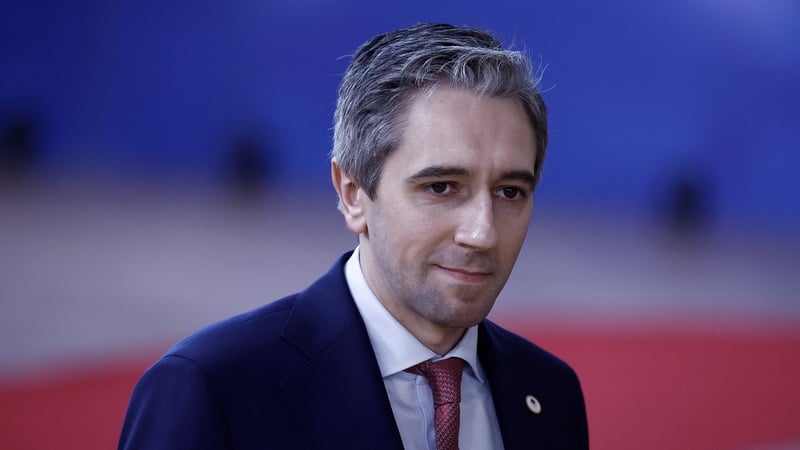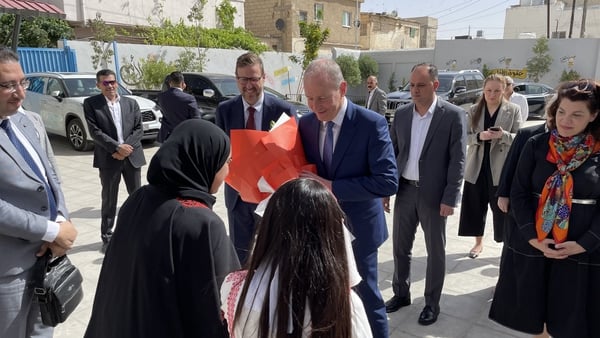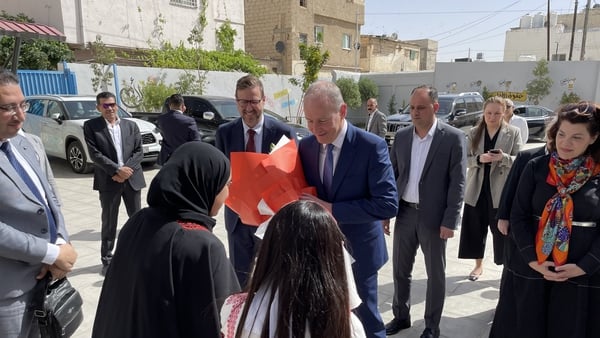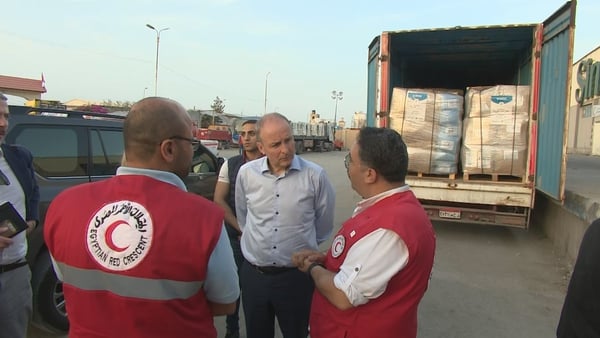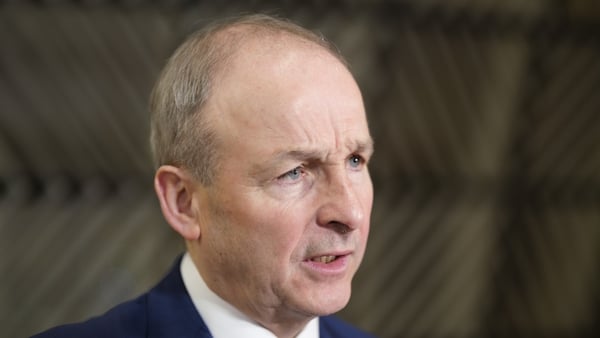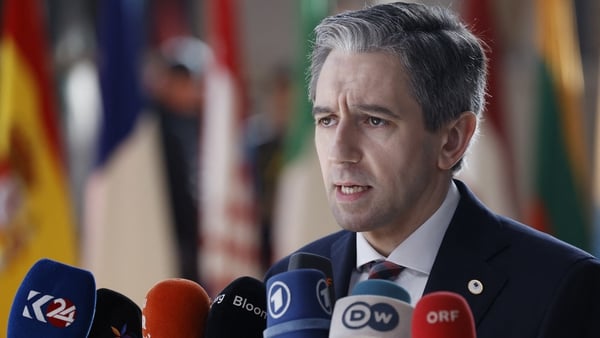Taoiseach Simon Harris has cautioned against any move towards developing Euro bonds in order to boost EU defence spending, in light of Russia's invasion of Ukraine.
Speaking to reporters on arrival at his first summit in Brussels, Mr Harris said: "I do think before we get anywhere near a discussion around [Euro] bonds, I think it's important that the European Union uses all the resources already at its disposal.
"I think we need to be very careful in terms of how we leverage the European Union. There are already very significant requirements around the green transition, the digital transition.
"I think we need to be cognisant of that," Mr Harris said.
The idea of using joint debt instruments to boost EU defence spending, in part to support Ukraine, has been circulating among some capitals, although there has been no formal proposal so far.
Mr Harris said he had told Ukrainian president Volodymyr Zelensky by phone that Ireland stood "resolutely" with his country.
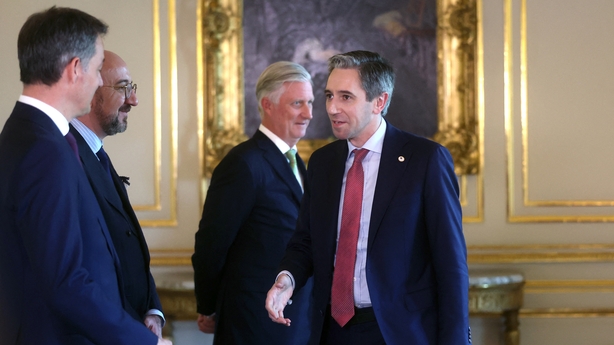
He said there was a "very important conversation" to be had in relation to the EU using windfall profits on frozen Russian assets in order to support Ukraine’s defence.
The Taoiseach said he had been briefed by the Minister for Integration Roderic O’Gorman that while 15 Ukrainians in Ireland were seeking state accommodation each day, some 45 were leaving it, meaning 175 fewer each week.
Recent changes to welfare rules for Ukrainians had been having an impact on the reduction, he said, although there was still a significant number of non-Ukrainians seeking accommodation.
"We have published, and agreed as a Government, the accommodation framework recently for international protection applicants," Mr Harris said.
He added: "I think that's welcome because it acknowledges that the current process of continuing to be almost wholly reliant on the private market isn't sustainable.
"We took a decision yesterday to extend the lease and the use of Citywest for a further year. I think that is good," Mr Harris said.
"But I do think we now need to see proposals come forward very quickly, in relation to other turnkey type opportunities that may exist in relation to international protection."
The Taoiseach said he would convene a Cabinet committee on migration "probably the week after next".
Single market completion dependent on capital markets union - Harris
Meanwhile, Mr Harris also said the completion of the EU’s single market was dependent on the development of a capital markets union, whereby non-bank sources of funding for investment purposes would be used to meet some of the EU’s spending needs in the coming years.
He told reporters in Brussels: "What is clear is this: the journey around the single market is not yet complete. The need for a capital markets union is now more apparent than ever.
"There's absolutely no doubt that the savings of Europeans are leaving the European Union and going elsewhere in the world.
"And I think at a time where there's a real need for an injection of private funds in terms of addressing some of the major challenges we face there's an onus on us now to try and move forward with the capital markets union," Mr Harris said.
He added: "But of course Ireland would have very clear views as to how best to do that and we'd articulate them during the course of the meeting tomorrow."
EU leaders will hear tomorrow from former Italian prime minister Enrico Letta, who has drawn up a report on the shortcomings of the single market.
This two-day summit was called to discuss competitiveness within the EU’s single market, but once again it is being overshadowed by events in the Middle East.
Last night, a number of EU foreign ministers called for sanctions against Iran to be expanded following its massive drone and missile attack against Israel on Saturday.
The EU’s foreign policy chief Josep Borrell has asked officials to draw up plans to expand the existing sanctions regime which focuses on Iran’s drone supplies to Russia, which Moscow is using to devastating effect in Ukraine.
The EU will also draw up a separate list of sanctions targeting Iran over its supplies of weaponry to proxy groups in Iraq, Syria, Lebanon and Yemen.
However, member states have resisted suggestions that Iran’s Revolutionary Guards, a parallel army which supports such proxy groups, be designated a terrorist organisation.
In their discussions this evening, EU leaders will seek ways of holding Iran to account, but in a way that does not further escalate tensions in the region or scupper diplomatic links with Tehran.
Mr Harris is likely to discuss with a group of leaders the issue of recognising Palestinian statehood.
However, the Government accepts that this is not something the EU as a whole is yet ready to do.
